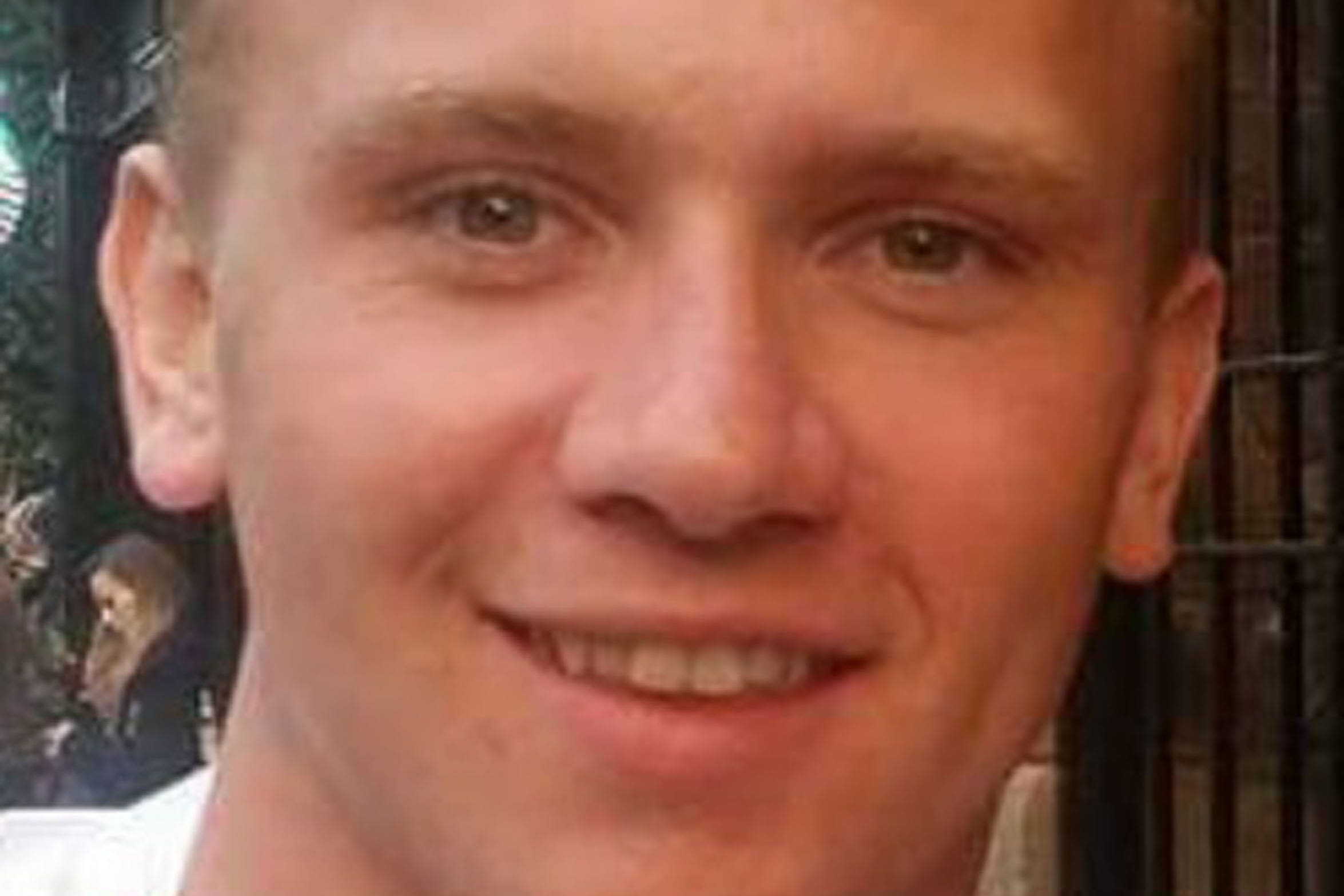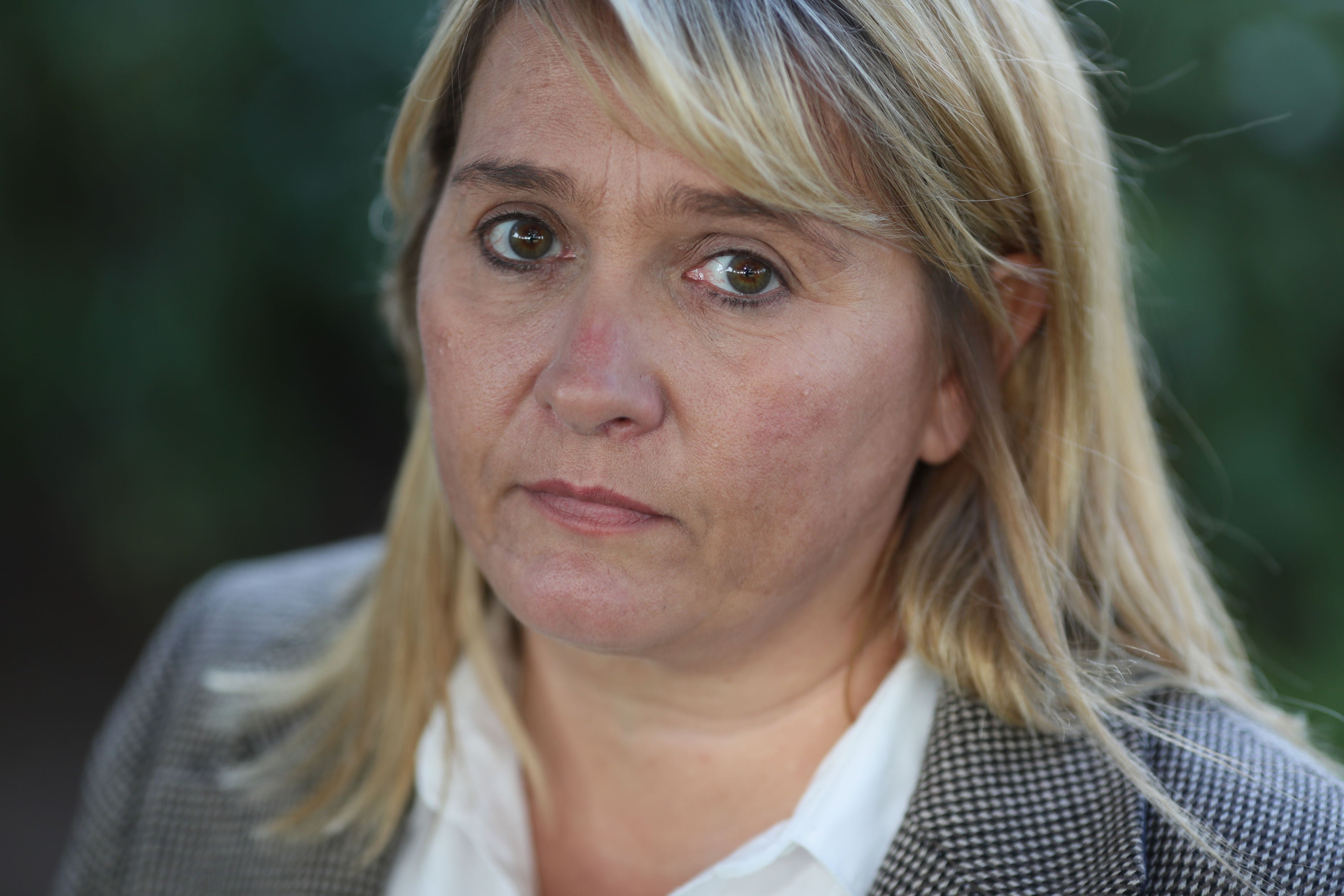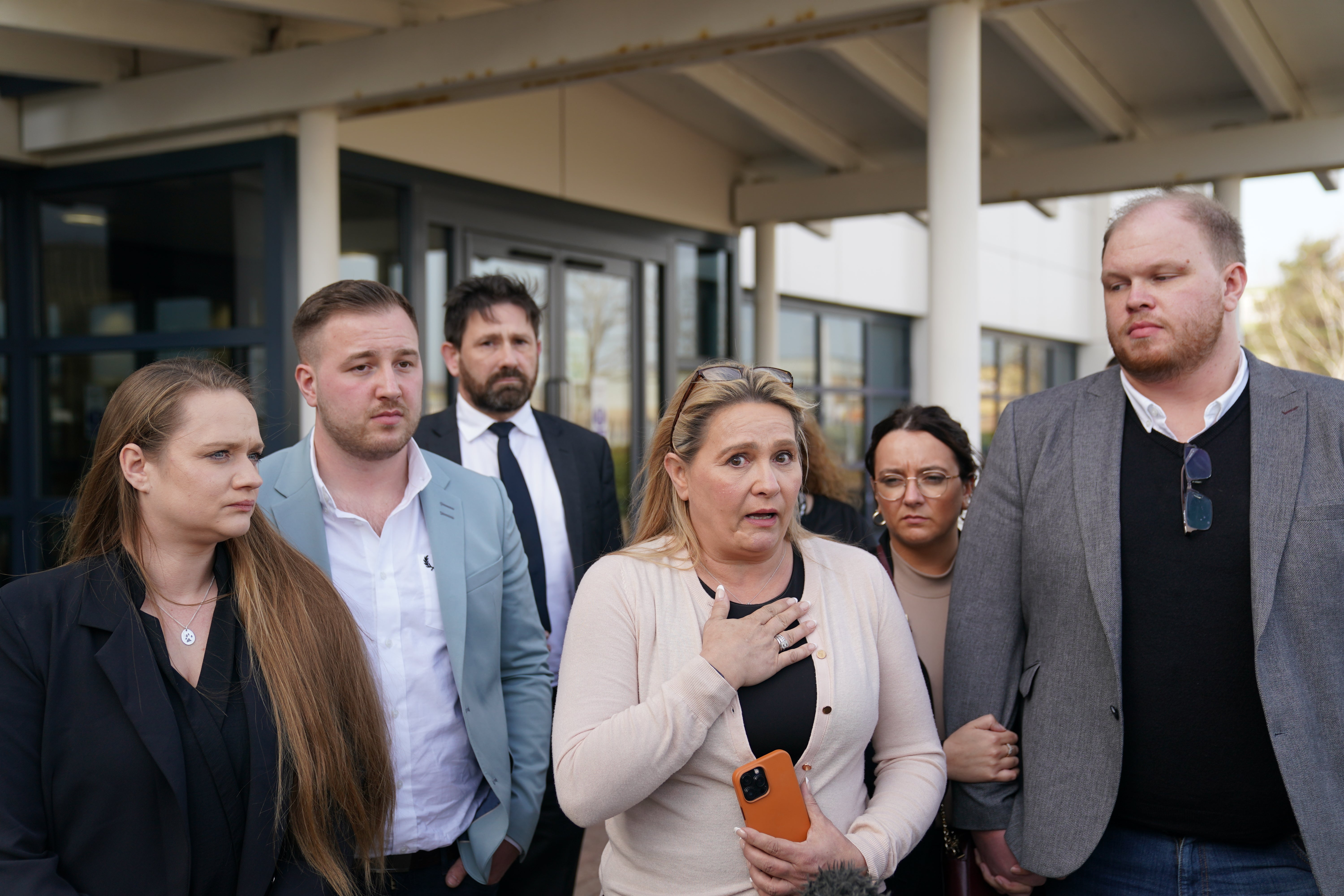Mother of airman who died after climbing into bin tells of ‘rage’ over lack of safety action
Corrie Mckeague died after climbing into a Biffa bin that was then tipped into a waste lorry

Your support helps us to tell the story
From reproductive rights to climate change to Big Tech, The Independent is on the ground when the story is developing. Whether it's investigating the financials of Elon Musk's pro-Trump PAC or producing our latest documentary, 'The A Word', which shines a light on the American women fighting for reproductive rights, we know how important it is to parse out the facts from the messaging.
At such a critical moment in US history, we need reporters on the ground. Your donation allows us to keep sending journalists to speak to both sides of the story.
The Independent is trusted by Americans across the entire political spectrum. And unlike many other quality news outlets, we choose not to lock Americans out of our reporting and analysis with paywalls. We believe quality journalism should be available to everyone, paid for by those who can afford it.
Your support makes all the difference.The mother of an airman who died after climbing into a bin that was then tipped into a lorry has told of her anger that more is not being done to prevent a similar tragedy.
RAF gunner Corrie Mckeague was 23 years old when he vanished on a night out in Bury St Edmunds, Suffolk, in September 2016.
He was last seen on CCTV at 3.25am behind a Greggs shop, and an inquest last year recorded that he got into a nearby bin that was emptied into a waste lorry.
His body was never found, despite in-depth searches including at a landfill site in Milton.
His mother Nicola Urquhart said the coroner wrote a report raising concerns about ineffective bin locks, but in recent days she shared photos online showing open bins in the area where her son climbed in.
“The rage I feel right now makes me feel sick to my absolute core,” said Ms Urquhart, writing on the Find Corrie Facebook page. “I have honestly never felt so useless and hopeless.”
She said that “not one of these bins (in photos she shared online) should be collected” as they were not locked.

Following Mr Mckeague’s death, a coroner raised concerns over bin safety in a prevention of future death report.
In his report last year, senior coroner Nigel Parsley suggested that fitting stronger locks was likely to reduce the number of reported incidents of people getting into them.
Mr Mckeague, from Fife, Scotland, died as a result of “compression asphyxia in association with multiple injuries”, the jury inquest found. His death “was contributed to by impaired judgment due to alcohol consumption”.
In his report, Mr Parsley said the inquest was told that bin locks were designed to “keep waste within the bin, keep inclement weather out, but were not designed to keep individuals out”.

“The locks were described as not robust, and a determined or strong individual would get in,” said Mr Parsley. “Due to their design the locks were also frequently broken.
“Stronger locks – such as snap locks – had been considered, but due to the risk of entombing – an individual inadvertently becoming locked inside a bin – stronger locks had been discounted.
“However, the court heard there are currently no stronger bin locks available which would allow an individual to open them from the inside should they become entombed in a bin.”
He said there were 740 reported incidents of people in bins over a six-year period – equating to 10 per week – which “are likely to be reduced if stronger locks are fitted”.
In a response to the coroner’s report, Biffa said it believes the existing locking mechanisms “are effective when used and fulfil their purpose of securing waste inside the bin and preventing unauthorised access”.
“However, we have engaged with bin manufacturers on the locking options available and our understanding is that they are considering alternative design options available to secure containers,” the company said, in its response in May 2022.
“Whilst there are snap lock options available – being locks that ‘lock’ on closure of the bin lid and then require unlocking – as you heard during the inquest, these do present an entombing risk for any person entering the bin.
“Options to overcome this risk are being explored by the manufacturers.
“The effective use of any locking mechanism is reliant upon customers using the locks and not overfilling the bin so that the bin lid can be closed and the locks used effectively.
“We will be reminding our customers of the importance of bins being secured and, where feasible, being stored in a secure location.”
A Biffa spokesman said: “As a waste management company with operations nationwide, the health, safety and wellbeing of our employees, customers and members of the public is of critical importance to us.
“Our drivers undergo regular refresher training on the risk of people in and around bins.
“People seeking shelter in bins presents a challenge to the whole waste industry and we continue to work with our partners, colleagues and customers to address this issue.”



Join our commenting forum
Join thought-provoking conversations, follow other Independent readers and see their replies
Comments